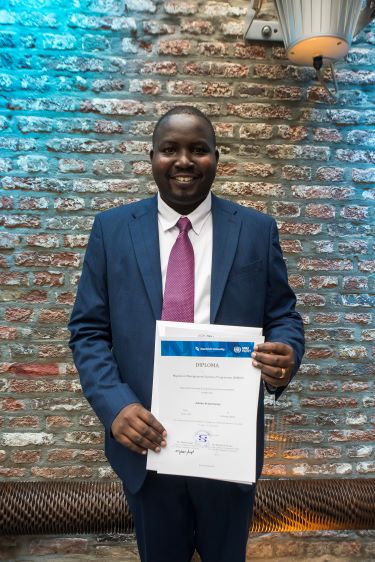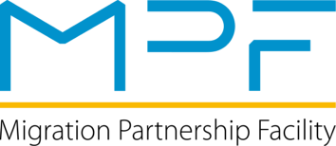Three recent graduates from the spring 2024 cohort of 25 students for the intensive three-month course under the “Migration Management Diploma Programme (MMDP)” have shared their views about the programme and how they plan to apply the new knowledge gained in their respective institutions.
Based at the United Nations University – Maastricht Economic and Social Research Institute on Innovation and Technology (UNU-MERIT), the full-time three-month course is addressed for partner country-government officials working in migration policy and funded by the EU through the Migration Partnership Facility.
Now in its second phase, the programme covers areas such as migration management and protection, migration and development, and migration policies, encouraging participants to apply a holistic approach to migration management and guide them in how to mainstream migration into across sectors, agencies and government levels.
Peer-to-peer learning is a central component of the training programme; reinforced by interactive sessions, networking opportunities and field visits to key migration institutions in Brussels, Geneva and The Hague.
_______________________________________________________________________________________________________________

“It was one of the best decisions in my professional and academic career”
Adrian Brian Owiny, Immigration Officer
Directorate of Citizenship and Immigration Control
Ministry of Internal Affairs, Uganda
How was your overall experience?
Throughout the programme, I had opportunity to learn from the experienced team from UNU-MERIT and Maastricht University School of Governance, the Professors and migration experts who provided valuable insights and guidance on migration matters. The curriculum was well structured, and the modules were thoughtfully designed to cater for the needs of working professionals, Immigration officers as myself, labour experts and migration practitioners.
The programme offered me one of best opportunity to network with like-minded professionals and migration experts from different countries, backgrounds and enabled us share experiences, challenges and exchanged ideas.
The MMDP programme has not only enhanced my knowledge and skills but also boosted my confidence and credibility in the migration industry. I can easily say that I am now better equipped to take on any leadership roles and tackle the complexities in handling migration challenges and in a better position to discuss and carry out trainings on migration related issues at the Uganda Immigration Training Academy.
How do you plan to apply and share the knowledge gained?
I intend to start a podcast to discuss issues related to migration. I am convinced that the podcast will help transfer this knowledge not only to my colleagues but to a bigger audience as well.
I intend to spear head collaborative efforts with my management to ensure more workshops and seminars for my colleagues are conducted. Since issues of refugees and Internally Displaced Persons are pertinent to Uganda, I will encourage cooperation with migration experts from international organisations such as International Organization for Migration (IOM) and UNHCR to conduct workshops and seminars for my colleagues.
Through my management at the Ministry of Internal Affairs, I will encourage them to have partnerships with institutions like UNU MERIT through their Capacity Development Office to have some of the Professors and Lecturers facilitate some courses at the training academy. This can be done through a memorandum of Understanding between the parties.
What are the main take-aways from this diploma?
- Human rights and ethical values
The course reminded me of the importance of protecting rights of migrants and ensuring ethical treatment. While protecting the borders of our states, we are reminded to strike a balance between national security and border control with humanitarian obligation.
- Need for collaboration between states
The multifaceted nature of migration influenced by global inequalities and various complexities in managing migration emphasises the need for better cooperation between states to manage it. No state can manage migration on it’s on. Global collaboration is crucial for effective migration management as best practice on successful collaboration between states offers valuable lessons for the future of migration.
- Data and research
The importance of maintaining data and conducting research on matters of migration was emphasised in making decisions. Countries should always rely on data to make evidenced based policies. The course introduced us to various sources of data for our countries and also how to use the available data.
- Personal and professional growth
The MMDP 2024 programme has broadened my perception and knowledge of migration management despite its complexities. I have become more empathetic to migrant’s experiences. I also feel am better equipped to contribute to Uganda’s process of developing a migration policy.
____________________________________________________________________
Stay tuned for part 2 and 3 of this series!
